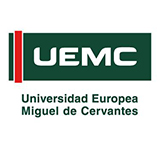Introduction
Miguel de Cervantes European University is a private university located in Spain. It is committed to providing students with high-quality education, focusing on cultivating students' practical ability and innovative spirit to meet the needs of social and economic development. It has certain characteristics and influence in the field of education.
Overview
Student size: The specific number of students is not clearly mentioned, but from the educational services and campus activities it provides, it has a certain number of students to maintain the normal teaching and academic activities of the school.
Campus distribution: There are campuses in Madrid and Cordoba. The Madrid campus is located in the city center, with convenient transportation and rich cultural and commercial resources around it; the Cordoba campus is located in Cordoba, which has a long history and rich cultural heritage, providing students with a unique learning environment.
History and establishment time
2002.
School Strength
Subjects and Majors: Undergraduate, Master and Doctoral Degree Programs are offered, covering multiple disciplines, such as arts and humanities, social sciences, business, law, health sciences, engineering and technology, etc., including psychology, education, advertising and public relations, marketing, law, medicine, nursing, physical therapy, engineering, computer science and other majors. The disciplines are relatively complete, providing students with a variety of professional choices.
Teaching Mode: Focus on practical teaching, through internships, project cooperation, laboratory practice and other methods, let students apply the theoretical knowledge they have learned to practical operations, cultivate students' practical hands-on ability and problem-solving ability. At the same time, the school also adopts modern teaching methods, such as online teaching platforms, multimedia resources, etc., to enrich teaching methods and improve teaching effects.
Teaching Staff: The specific number of teachers is not clearly mentioned, but from the perspective of its teaching quality and academic level, it has a team of teachers with professional knowledge and rich teaching experience. Most of the teachers are experts and scholars in related fields. They can not only impart professional knowledge, but also guide students to conduct academic research and practical exploration, and provide guidance and support for students' growth.
International cooperation: The specific situation of international cooperation is not explicitly mentioned, but from its internationalized educational philosophy, it may have a certain degree of communication and cooperation with international educational institutions or universities, such as student exchange programs, joint training programs, etc., to broaden students' international vision and enhance their competitiveness on a global scale.
Nature of institutions
Private universities have greater autonomy and flexibility in education and teaching and school management, and can adjust professional settings and teaching strategies in a timely manner according to market demand and educational development trends.
Educational philosophy
Emphasis on student-centeredness, focusing on cultivating students' innovative thinking, practical ability and social responsibility, and committed to providing students with an all-round educational environment so that students not only have solid professional knowledge, but also have good comprehensive qualities and the ability to adapt to social changes to meet the challenges of future social and professional development.
Key laboratories and disciplines
Key laboratories: Key laboratories are not explicitly mentioned, but from its discipline settings, it may be equipped with corresponding experimental facilities and research platforms in disciplines such as health sciences and engineering technology to support the development of teaching and scientific research and provide students with opportunities for practice and innovation.
Key disciplines: Health sciences, engineering technology, humanities and arts are the disciplines that the school focuses on. From the professional courses, faculty and scientific research investment in these disciplines, it can be seen that the school has certain advantages in these disciplines and is committed to cultivating professional talents in related fields.
Faculty
The establishment of the faculty is not clearly mentioned, but from the fact that the degree courses it provides cover multiple disciplines, it may have corresponding colleges or departments such as the School of Arts, the School of Social Sciences, the School of Business, the School of Law, the School of Health Sciences, and the School of Engineering to organize teaching and management work to ensure the smooth development of teaching activities and the effective improvement of teaching quality.
Ranking
The specific ranking information is not clearly mentioned, but it has a certain degree of popularity and influence both in Spain and internationally, and its education quality and academic level have been recognized to a certain extent.
Fees
The specific tuition standards are not clearly mentioned, but the tuition fees for different courses may vary depending on factors such as majors and degree levels. Students can check the school's official website or consult the admissions office for detailed information. At the same time, the school may provide scholarships, grants and other funding policies based on students' grades and financial conditions to reduce students' financial burden.
Campus Environment
Campus Facilities: The Madrid campus is located in the city center. The campus buildings may be a combination of modern and traditional styles. The surrounding transportation, commercial and cultural facilities are complete. There are teaching facilities such as libraries, classrooms, laboratories, computer centers, etc. on campus, providing students with convenient learning conditions. The city where the Cordoba campus is located has a profound cultural heritage and a beautiful campus environment. It has comfortable teaching and living facilities, such as a rich library collection, complete sports facilities, and good student dormitory conditions, which create a good learning and living atmosphere for students.
Campus Cultural Activities: The school pays attention to campus cultural construction and actively organizes various cultural activities, academic lectures, and community activities to enrich students' extracurricular life, promote exchanges and cooperation among students, and cultivate students' team spirit and innovation ability. In addition, the rich cultural resources of Madrid and Cordoba also provide students with a broad space for extracurricular learning and practice, such as visiting museums, art exhibitions, historical sites, etc., which help broaden students' horizons and improve their cultural literacy.
-
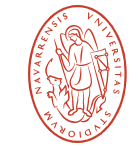
University of Navarra
-
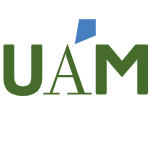
Autonomous University of Madrid
-
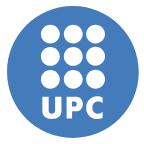
Polytechnic University of Catalonia
-

CEU University of San Pablo
-
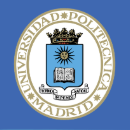
Technical University of Madrid
-

University of Lleida
-
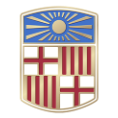
University of Barcelona
-
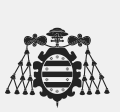
University of Oviedo
-
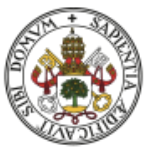
University of Valladolid
-
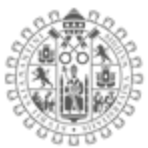
University of Salamanca
-

Mesoamerican University
-

Istmo University
-

Mariano Galvez University of Guatemala
-

Regional University of Guatemala
-

Galileo University
-

Francisco Marroquín University
-

Rafael Landívar University
-

University of the Valley of Guatemala
-

University of San Carlos of Guatemala
-

Technological Institute of Tlaxcala Plateau
-

Golfo University
-

Technological University of South Sonora
-

Technological University of Huejotzingo
-

Tizimín Institute of Technology
-

Chilpancingo Institute of Technology

